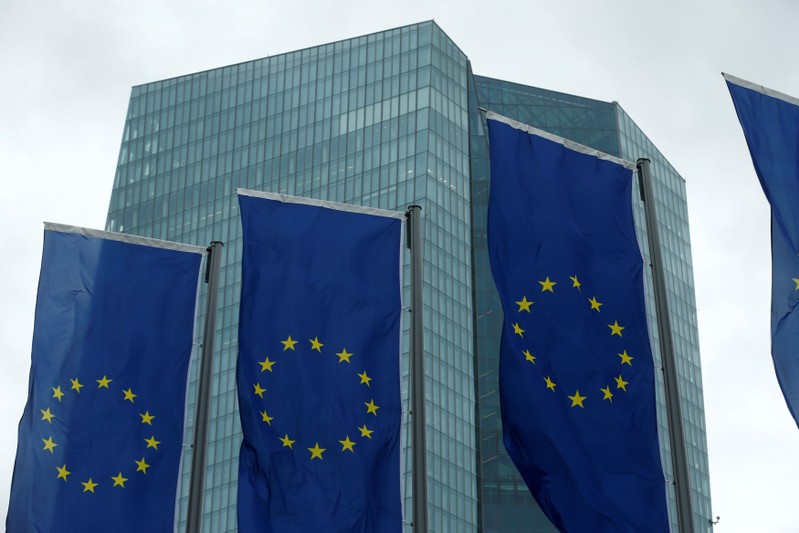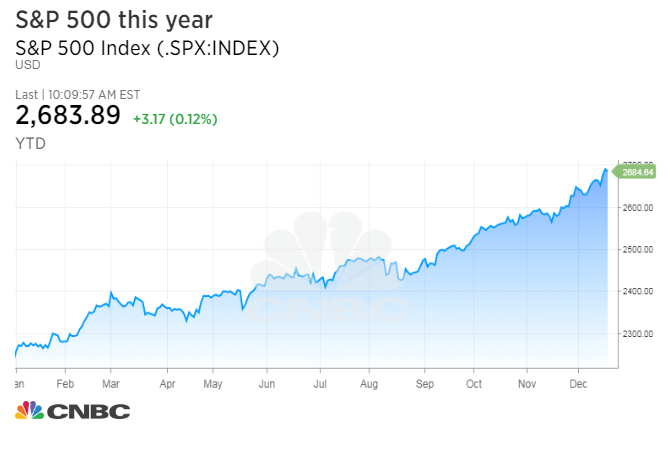
FILE PHOTO: European Union flags flutter outside the European Central Bank (ECB) headquarters in Frankfurt, Germany December 14, 2017. REUTERS/Ralph Orlowski/File Photo
December 20, 2017
By Teis Jensen
COPENHAGEN (Reuters) – The European Central Bank (ECB) should begin winding down its monetary stimulus and tighten policy as low interest rates lead to a risk of overheating, the finance minister of non-euro member Denmark, said on Wednesday.
Some ECB policymakers have begun to talk about the need for the bank to begin considering life after its 2.55 trillion euro quantitative easing scheme.
“When you’re looking at how strong the upswing is in Europe now, and you look at how many countries in Europe actually have a self-sustained upswing, then it is time for the ECB to stop supporting the (economy with its ultra-low) interest rate policy to the extent it does,” Kristian Jensen told Reuters.
Denmark’s crown currency has been pegged to the euro for many years, effectively forcing the central bank to move interest rates lower along with the ECB.
The ECB has kept its deposit rate below zero since 2014, charging banks for keeping idle cash there as a way to spur them to lend out more. The Danish central bank’s key deposit rate has been in sub-zero territory since 2012.
“Not just Denmark, but a number of euro area countries, primarily Germany, are in a situation of labor shortages and where the low interest rate leads to a risk of overheating, bottlenecks and wage pressure,” Jensen said.
“Those things are not here yet, but they could come faster and be more difficult to handle if we do not gradually begin to step out of the monetary policy we have currently,” he said.
The ECB has pledged to continue buying bonds at least until September. But with economic growth in the euro zone on its best run in a decade and inflation comfortably above 1 percent, it is widely expected to wind down the program thereafter.
Ireland on Tuesday repaid Denmark a 3 billion Danish crown ($476 million) loan, extended under an EU/IMF bailout, four years ahead of schedule.
“Those countries that have made structural reforms have entered nice upswings. Ireland is one example, Spain is another,” Jensen said.
“Classical structural policy, where you get rid of the inexpediencies that are holding the economy back, is to a much higher degree the way forward, rather than an interest rate policy that looks as if it is on speed,” he said.
The central bank of Sweden took its first tentative steps toward reversing its ultra-loose monetary policy on Wednesday, deciding not to make net new bond purchases.
Jensen’s government said on Monday that it expected economic output to exceed sustainable potential output next year and that its policies should address the risk of overheating.
(Reporting by Teis Jensen; Editing by Jacob Gronholt-Pedersen and Hugh Lawson)

